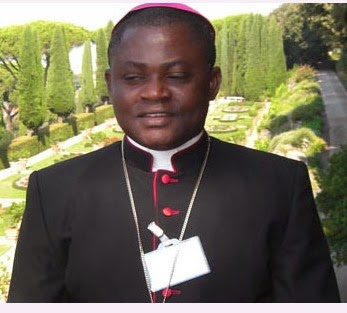Barely a month after the interment of the former Catholic Bishop of Aba Diocese, Most Rev. Vincent Ezeonyia CSSp, the Catholic Church in Nigeria has lost another young and vibrant Bishop to the cold hands of death. His Lordship, Most Rev. Malachy John Goltok, the Catholic Bishop of Bauchi diocese, lost his over one month of battle against cancer of the throat when he gave up at the wee hours of Saturday March 21 2015. Until his death which occurred at the age of 49, he was a very dedicated and vibrant Bishop.
The Bauchi Diocesan Chancellor and Secretary to the Late Bishop, Rev. Fr. Andrew Batare confirmed the unfortunate incident and revealed that the Late Bishop was given adequate medical attention at Our Lady of Apostles Hospital Jos before his demise. According to him, the late Bishop was due to celebrate his 50thbirthday in July and his 25th Priestly Ordination anniversary in November. In a Press Release signed by Fr Justine John Dyikuk for the Director of Social Communications, Bauchi Diocese, a vigil Mass will be celebrated in honour of the deceased Bishop on Wednesday March 25 2015 at 6pm at St. John’s Cathedral Bauchi while his Funeral Mass will hold on Thursday March 26 2015 at 10pm in the Cathedral Church.



